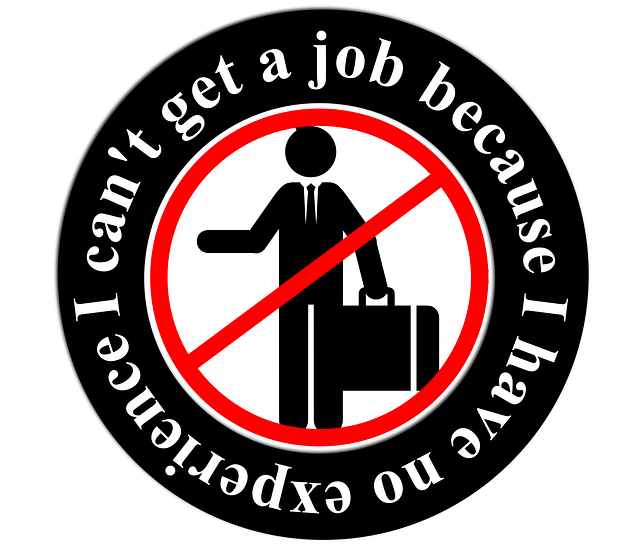
Tips For Applying For ‘Entry-Level’ Jobs That Demand Loads Of Experience
- July 14, 2017
- Kym Darragh
We’ve all been there. You’ve recently graduated and are desperate to start work in a field you’ve studied for the better part of four years. You sit at your computer, open up monster.com and type in your dream job title. You’re feeling pretty good – even optimistic.
And you’re met with page after page of ‘entry-level’ or ‘graduate’ jobs which seem to want experience way past your years.
It’s understandable. Money is tight at the moment and employers value someone with on-the-job training. To them it equals less time (and money) spent on training. Still, it’s beginning to look like a job-market-wide conspiracy. You need experience to work at all, but no one will hire you to give you any experience, which you need to be hired… And so on.
Take a deep breath and read through some of our tips to help you get that job.
I volunteer as tribute!
As above-mentioned, money is tight. While unpaid internships are illegal, there’s nothing to stop you volunteering for a local company if you think you’ll get enough out of it. And employers should be desperate to hire someone who will do it for free!
Work out what experience you need for your dream job and have a look at local companies where you will gain the same sort of skills. Looking for customer service experience? Volunteer at your local hairdressers, restaurant or pub. Trying to break into accountancy? Ask if you can shadow someone at your nearest account firm.
The lessons you learn as a volunteer can be invaluable. You get a foot in the door, make connections and get learning! Head to somewhere like this to get started!
I’m ready for my close-up, Mr DeMille.
In real life, when we go on dates or meet people for the first time, we edit ourselves. This needs to also be true of your CV.
Edit. A CV should be short and sweet, get to the point and have relevancy. There’s no good in putting the lead role you had in your school’s production of Les Mis if you’re going for a position as a paralegal.
Read the job description for the spec you’re eyeing and make note of what kind of person they want. Ensure you highlight those things on your CV, not the useless info which will just take up space.
If you’re applying for a role where they want someone who is highly organised, leave off that ‘most likely to lose own head’ accolade from your graduation yearbook.
I always tell the truth, even when I lie
Okay, first of all: DO NOT lie on your CV.
Today more than ever before, a quick Google search can prove that you never worked at MI5, not even for the summer. People will find out and it will be embarrassing.
Now this being said, it doesn’t mean you can’t embellish a little.
Let’s be clear: this isn’t lying. This is simply a way of making the skills which are relevant to the job stand out a little more. Similar to the above point, you need to pick which skills to highlight and which to leave out.
For example, you’re applying for a job where they want customer service experience but you don’t really have any per se. Your last job was as the cleaner of a pub. However, were there times that you had to let people in to help set them up for functions? Or perhaps you answered the phone if nobody else was there? Put it in there; it’s better than nothing.
It’s all about perspective. Sure to the untrained eye, it may have looked like you helped people lug in boxes from the car. But in reality you made them feel comfortable and at ease, helped them with their requests and served those customers. So talk about it.
To be irreplaceable, be different
It’s been said before and it’ll be said again: read the job spec like it’s your favourite book on Earth. Then tailor your CV for that role.
Imagine you’re applying for four different jobs, all based around software development. Sounds like you can get away with the same blanket CV for each job, right?
Wrong.
No matter how similar a job is, ALWAYS tailor your CV specifically to the individual role. If you’ve written a different CV for each company, hiring managers are more likely to be impressed than if you’ve just sent off the same template for hundreds of jobs.
This rule also applies to cover letters. Cover letters are a good thing, generally; they open you up as a person to your employer before they’ve had a chance to meet you. But write a new one for each individual application. Sure, have a rough template and edit it according to the job you’re applying for. But never copy/paste completely.
I think I can, I think I can
You’ve read the job description and can picture yourself doing the job. You know you can do it. Now you just need to make your employers see it.
It’s easy to let nerves get the better of you and start doubting yourself before you’ve even begun. Try to hold onto that feeling you had when you first saw the job. Everyone loves to hire someone with a positive attitude. Hold on tight to that empowered feeling and don’t let go – and don’t be surprised when that job offer finally lands in your inbox!
So you’ve edited your CV, written several thousand cover letters, volunteered and you’ve believed in yourself so hard that you’ve started sparkling. Hold on to all those feelings and – whatever happens – cling to the belief that this will work out for you. Because in the end, my friend, it always does.
Good luck!
Inspiring Interns is a graduate recruitment agency which specialises in sourcing candidates for marketing internship roles and giving out graduate careers advice. To browse graduate jobs and graduate jobs Manchester, visit their website.







